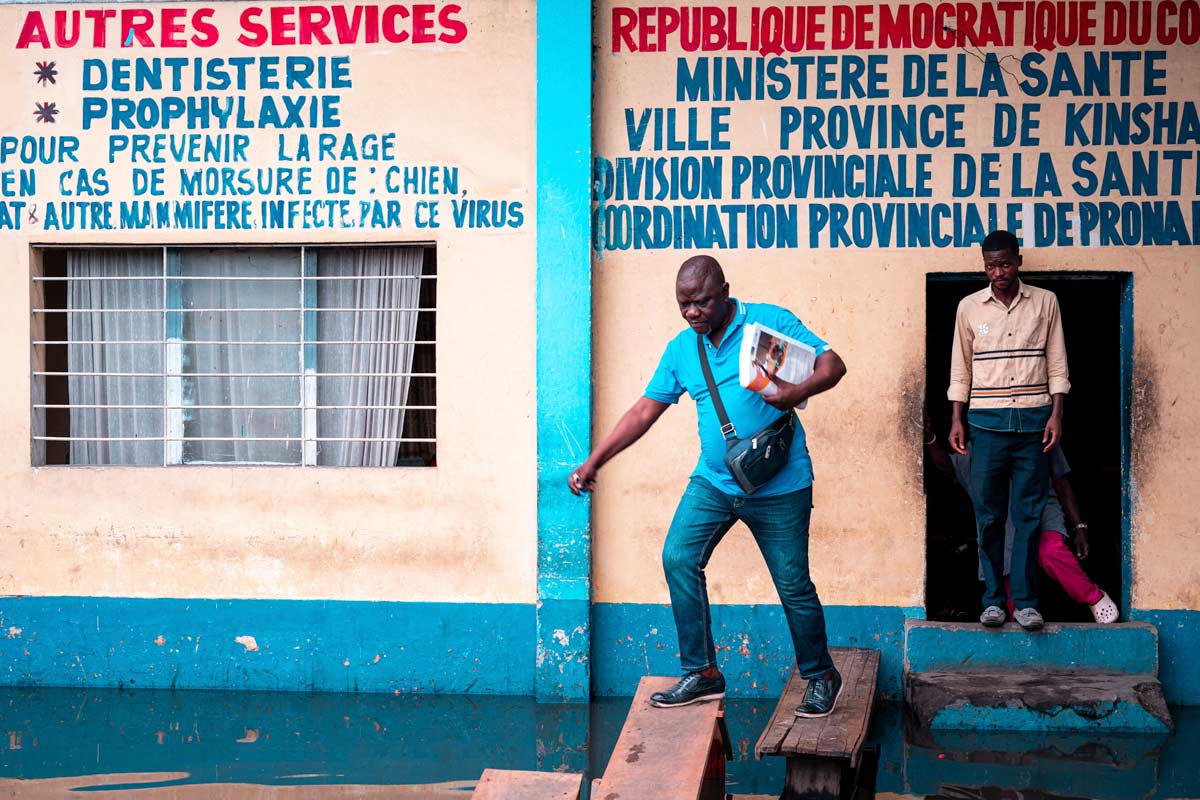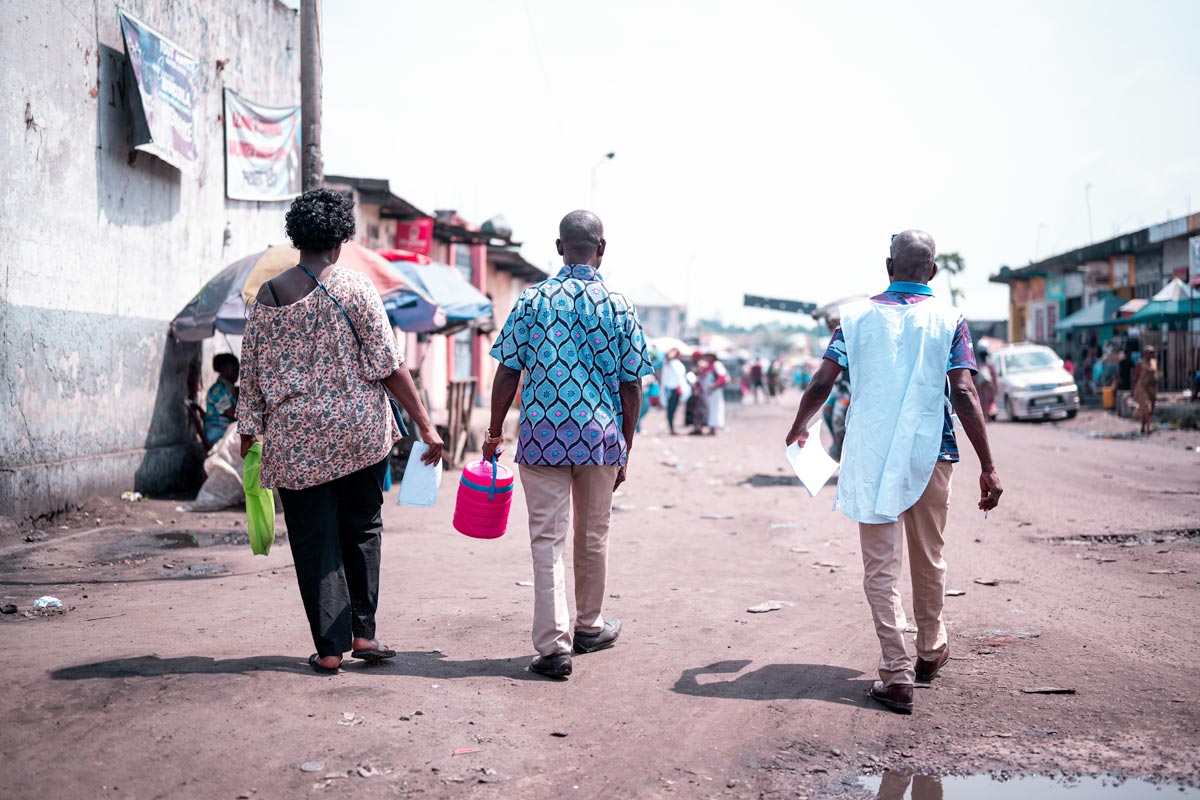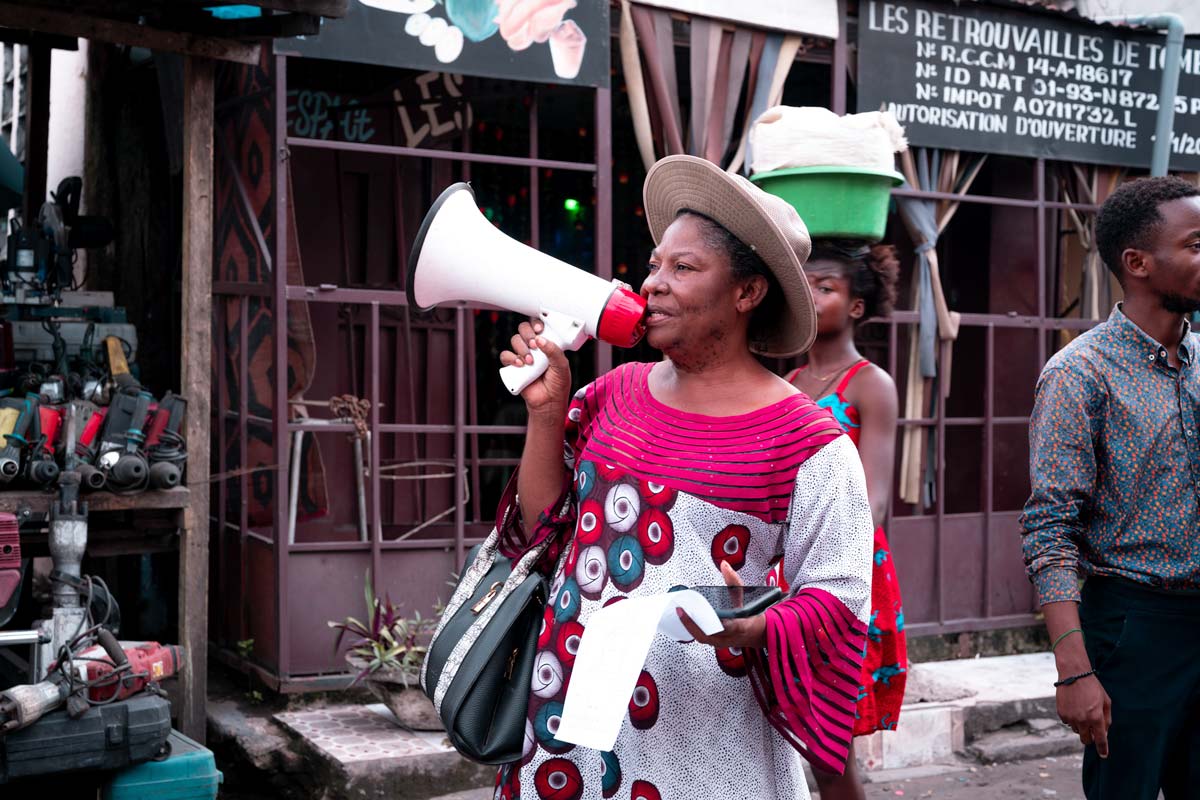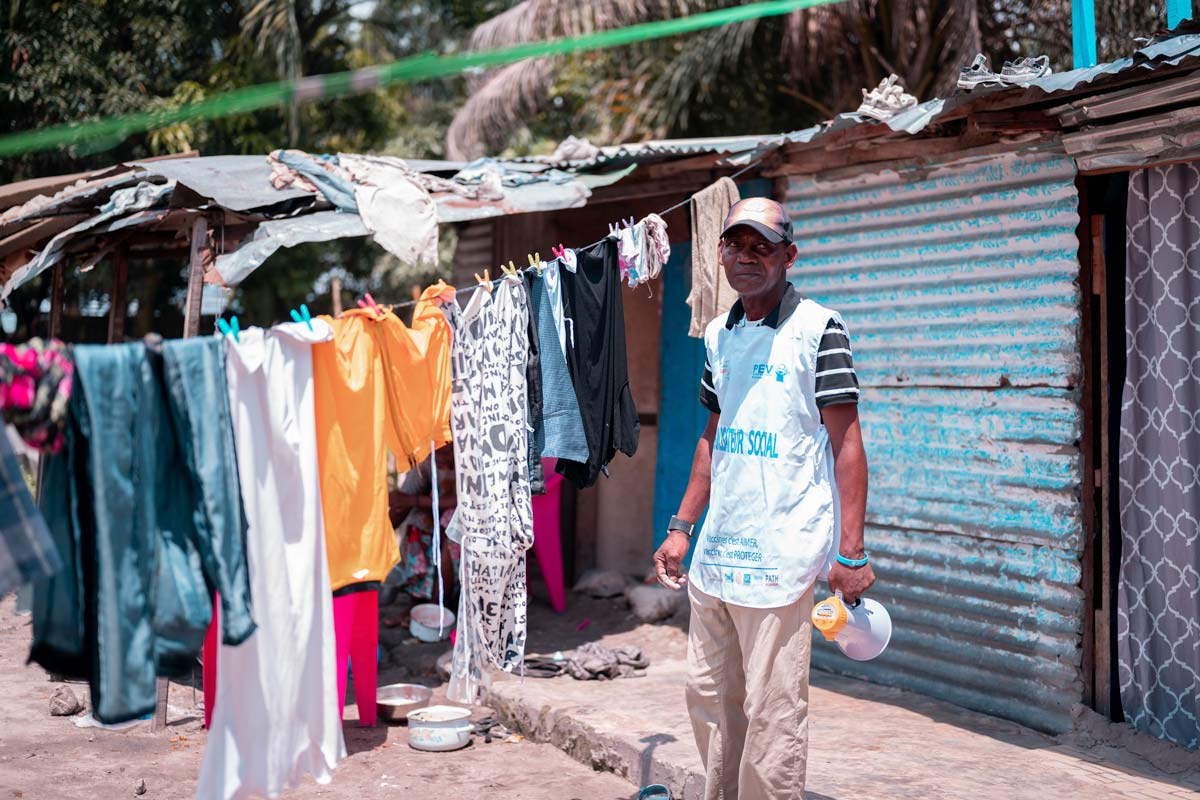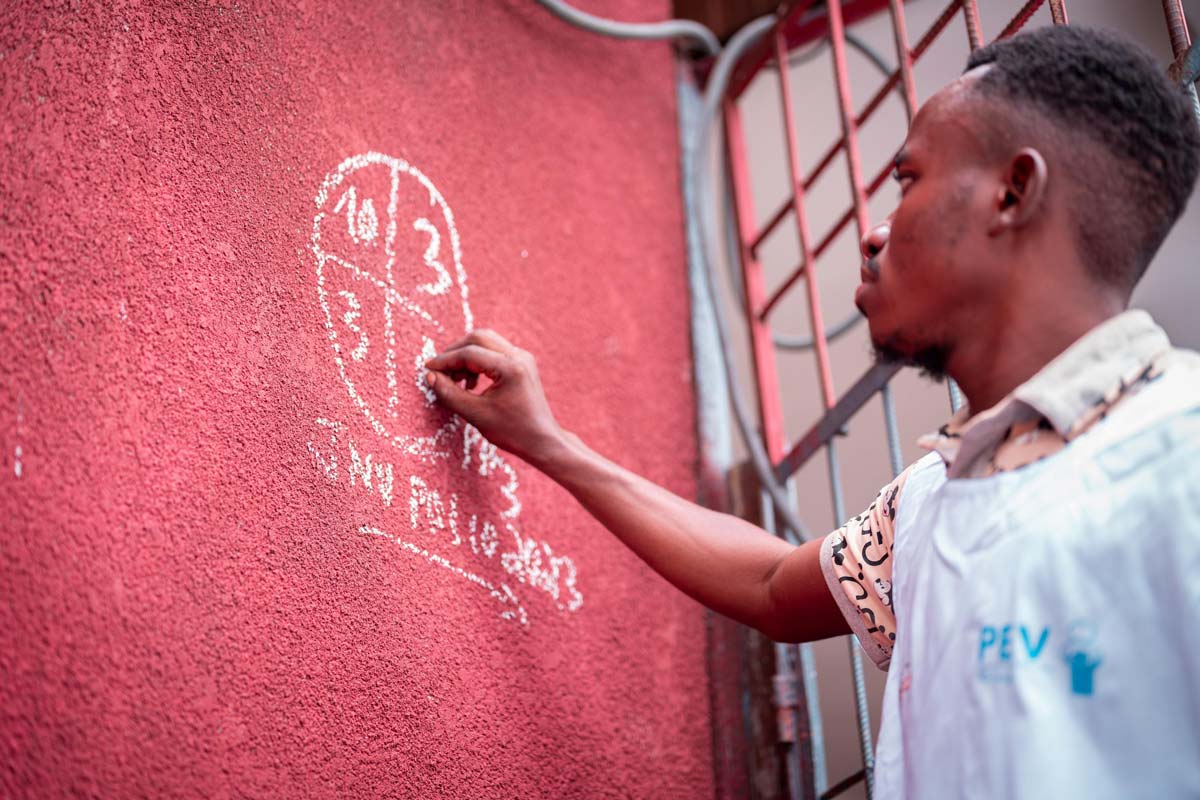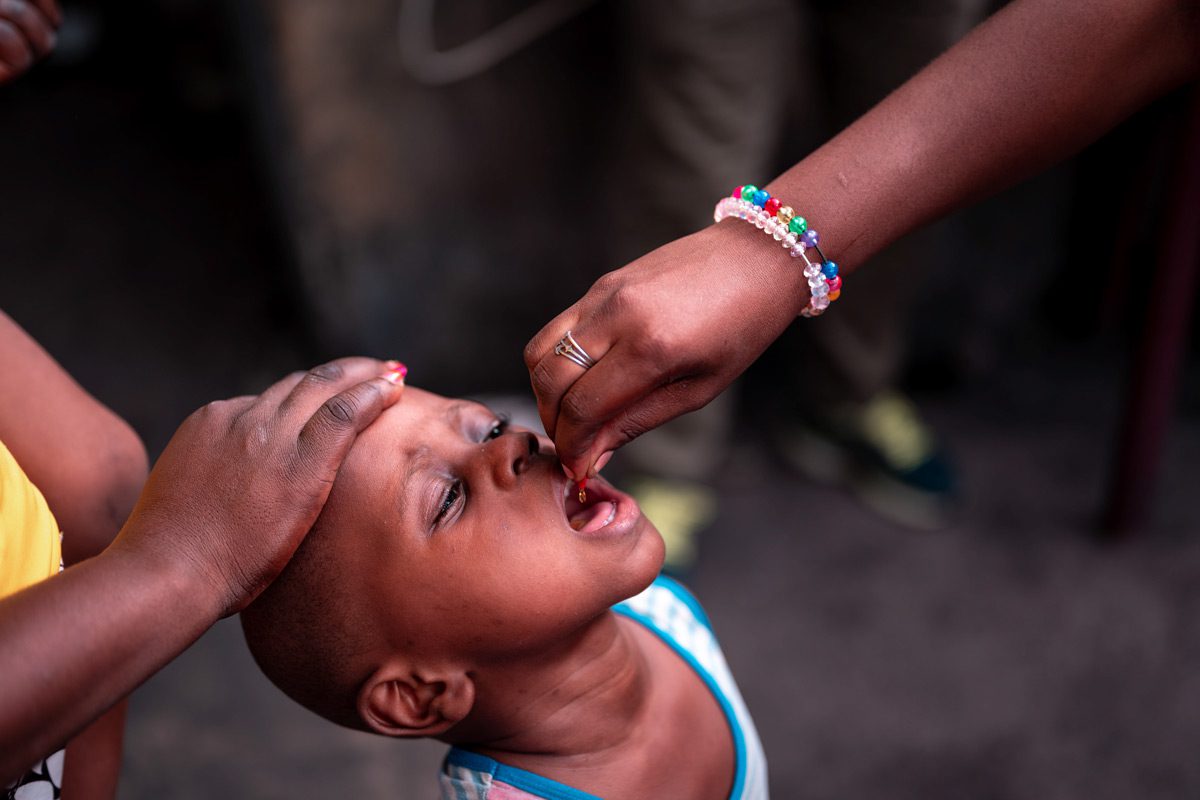STORY
Addressing Barriers to Health in the Democratic Republic of Congo
By Kari Brayman
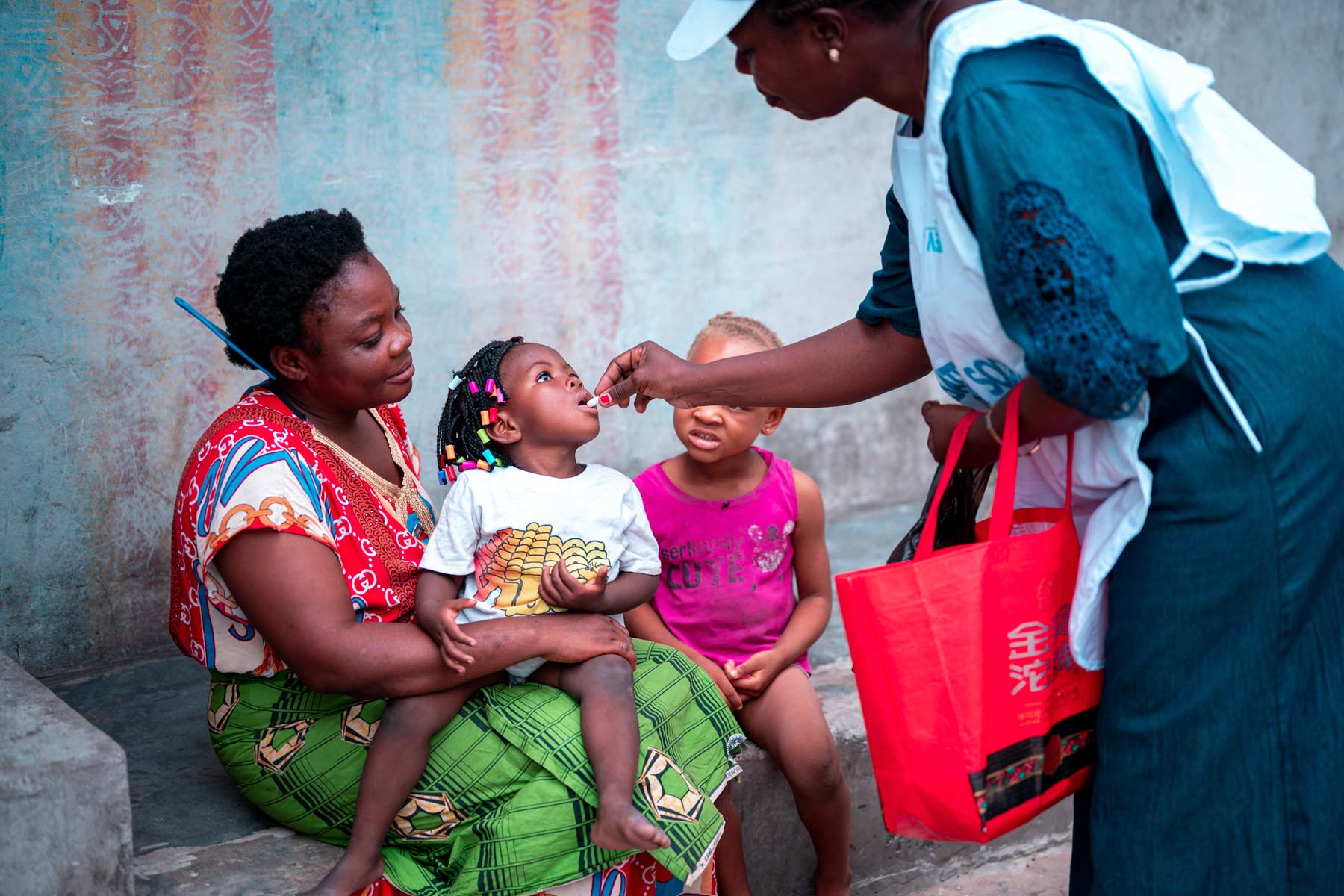
Vitamin Angels and Partners Deliver Door-to-Door Health Interventions in the DRC
The Democratic Republic of Congo (DRC) is the second largest country in Africa and home to about 95 million people. Residents face significant challenges to health and safety including ongoing internal conflicts and international aggression, lack of clean water, and the re-emergence of infectious diseases.
By the Numbers: DRC
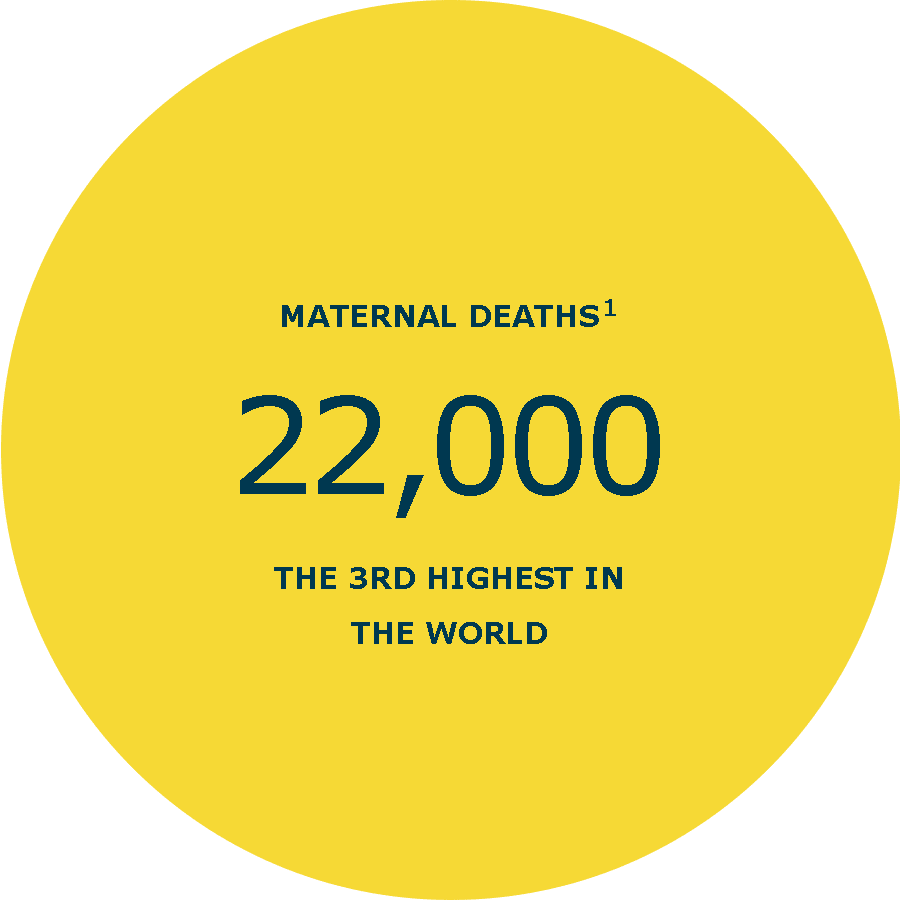
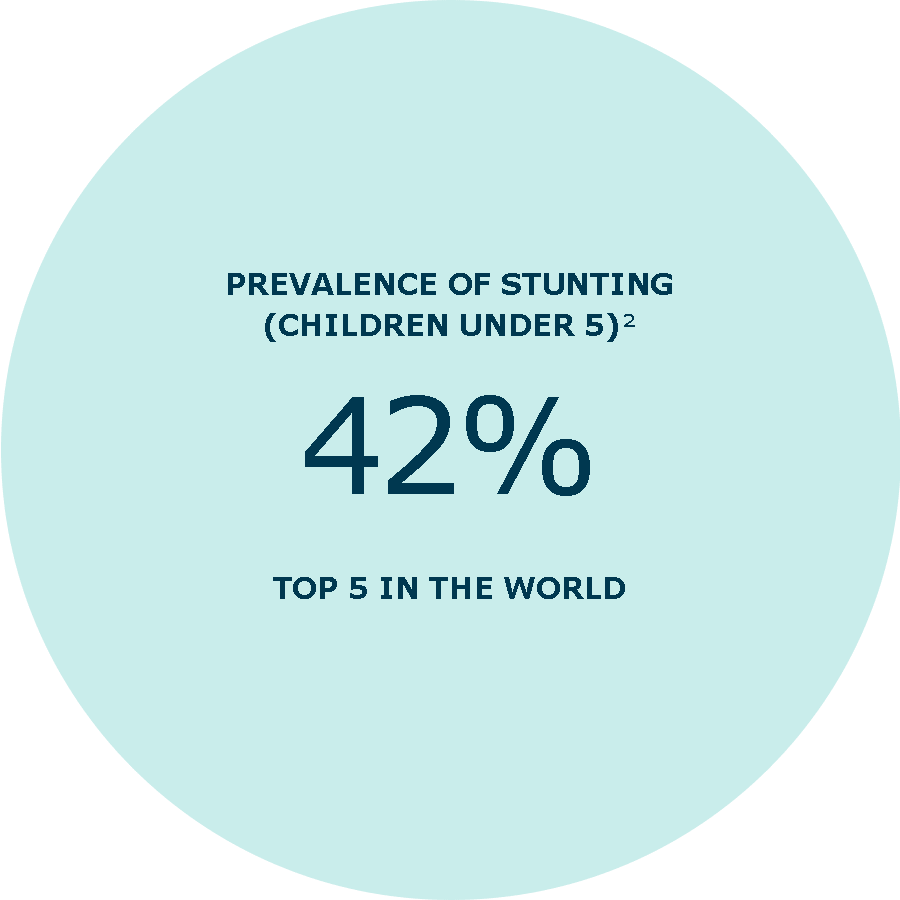
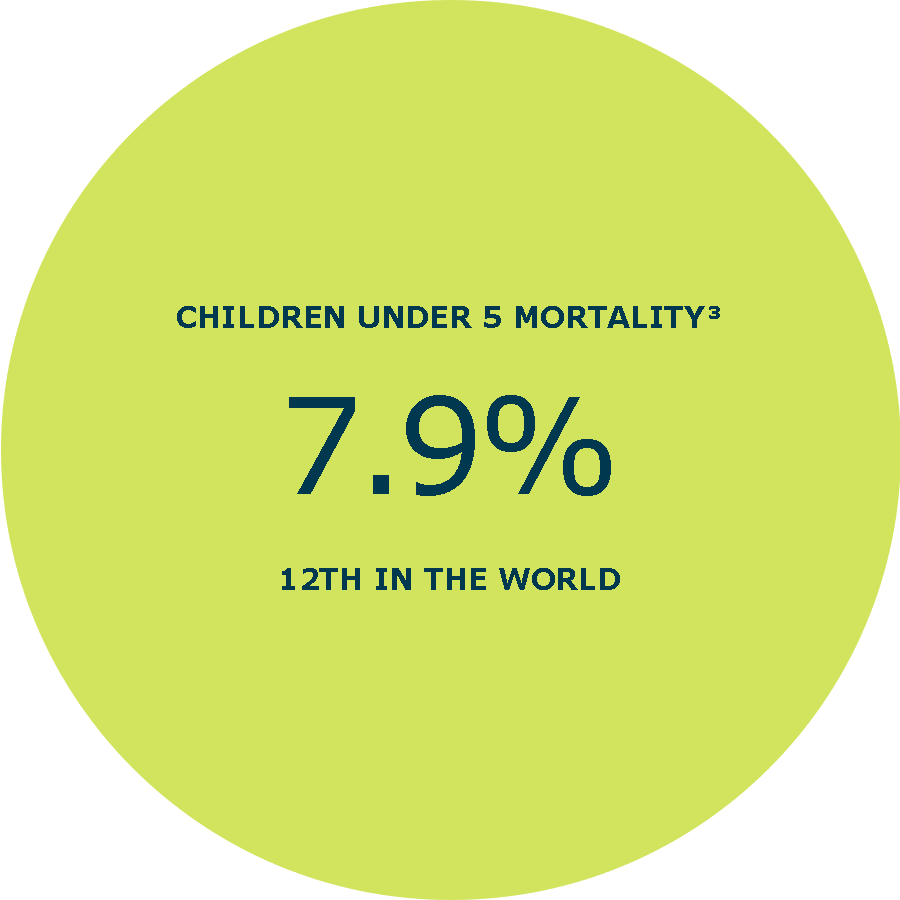
Although the region is abundant in minerals and fertile soil, The DRC is among the countries with the poorest populations in the world, with about one in six people living in extreme poverty.4 This critical issue presents challenges in securing necessary healthcare, particularly for women and children who are disproportionately affected.
The country’s sheer size – covering an area as vast as Western Europe – starkly contrasts the limited transportation options available, creating barriers for those seeking medical care. Poor transportation infrastructure is compounded by the prevalence of violent crime making travel to the limited health clinics unsafe for many Congolese women.
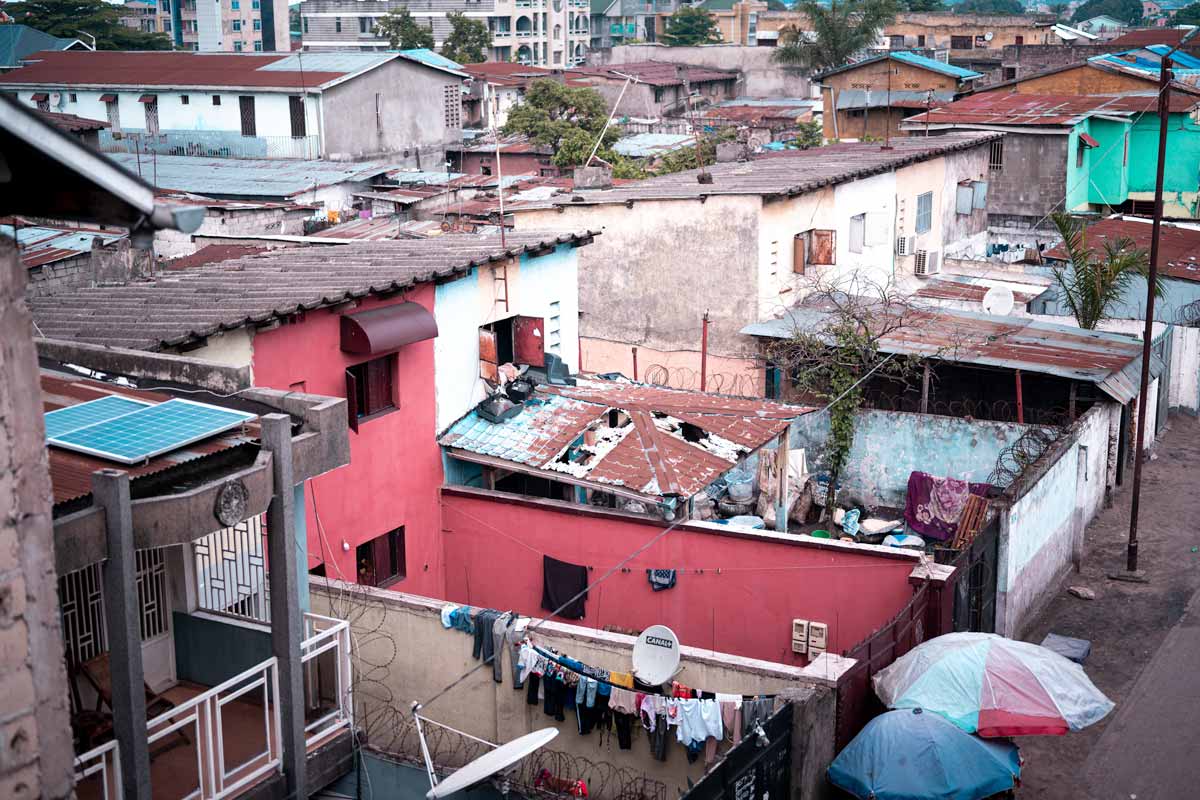
Herman Kambala/Vitamin Angels/Fairpicture 2023
According to our partner, Reseau Moringa, the DRC’s national healthcare infrastructure is inadequate. Current policies are either not implemented or dysfunctional, and no subsidized healthcare system or mutual health insurance exists. Permanent and chronic shortages in skilled healthcare providers, laboratories, and essential medications further reinforce barriers to quality healthcare.
The challenges extend beyond access to healthcare. The lack of clean water and sanitation infrastructure poses additional health risks, and the re-emergence of previously eradicated preventable diseases and epidemics further threatens health. Additionally, the uncertainties of agriculture, from the internal displacement of populations and an influx of refugees from neighboring countries to the risk of natural disasters such as floods, landslides, and erosion, further endanger food security and by a ripple effect, the state of health and nutrition.
Women and children need nutrition interventions now, more than ever in the DRC. Vitamin Angels established a program in DRC in 2015, filling the gaps in the national health campaigns established by the country’s Ministry of Health, to provide essential vitamins and minerals in partnership with locally-based organizations like Reseau Moringa.
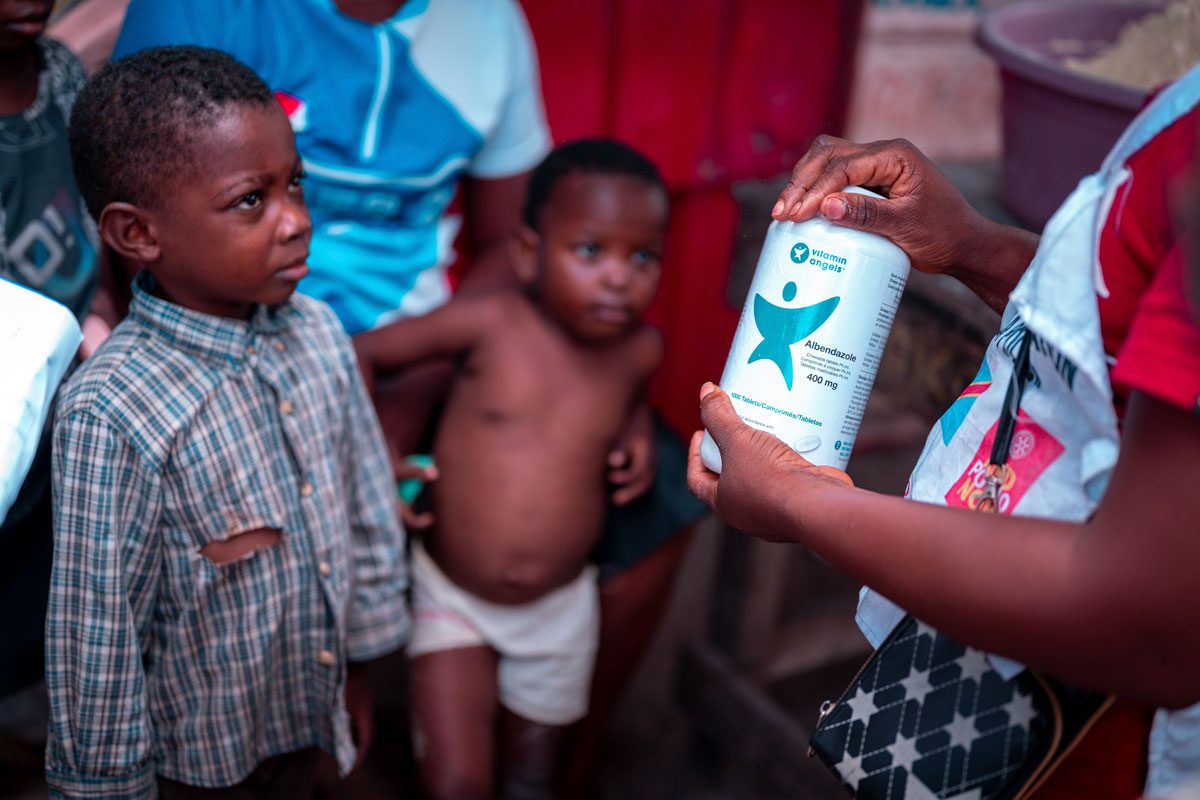
Herman Kambala/Vitamin Angels/Fairpicture 2023
Reseau Moringa aims to enhance the health of pregnant women and children in DRC by addressing the obstacles that prevent them from receiving quality healthcare. This involves increasing community awareness about preventable diseases, making it easier for them to access quality healthcare services, and promoting income generation in households to help fight poverty.
Reseau Moringa is also working to improve health service delivery in line with the country’s established health system standards through good governance and improved processes. By mobilizing communities to actively participate in the implementation of the national health policy, the non-profit addresses both acute and long-term health needs through consistent interventions and monitoring initiatives.
In DRC, these efforts entail going to the community, rather than expecting them to seek out healthcare services. This community-based model considers the risks associated with high-cost transportation and the prevalence of gender-based violence, which can restrict women’s ability to travel for health appointments, so the door-to-door model of delivery addresses many barriers to accessing critical nutrition.5
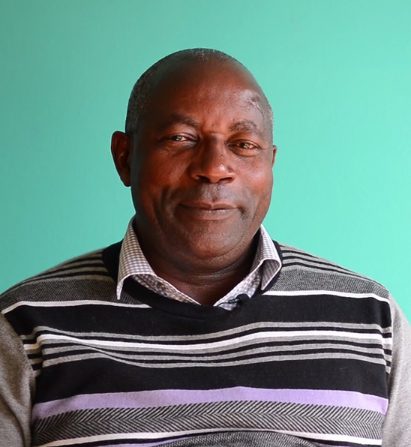
“Door-to-door provision of health interventions is an effective strategy that increases access, equity, and coverage of services. This strategy overcomes barriers such as transportation, costs, and the lack of a communication network across communities in the DRC.”
— Mulamba Diese, MD, Senior Program Manager DRC
Herman Kambala/Vitamin Angels/Fairpicture 2023
Vitamin Angels provided 600,000 women with UNIMMAP MMS and 12.4 million children under 5 with vitamin A and deworming treatment in partnership with 100 organizations across 19 of 26 provinces.
1 https://genderdata.worldbank.org/indicators/sh-mmr-dths?view=bar
2 https://genderdata.worldbank.org/indicators/sh-sta-stnt-zs?view=bar
3 https://genderdata.worldbank.org/indicators/sh-dyn-mort?view=bar



